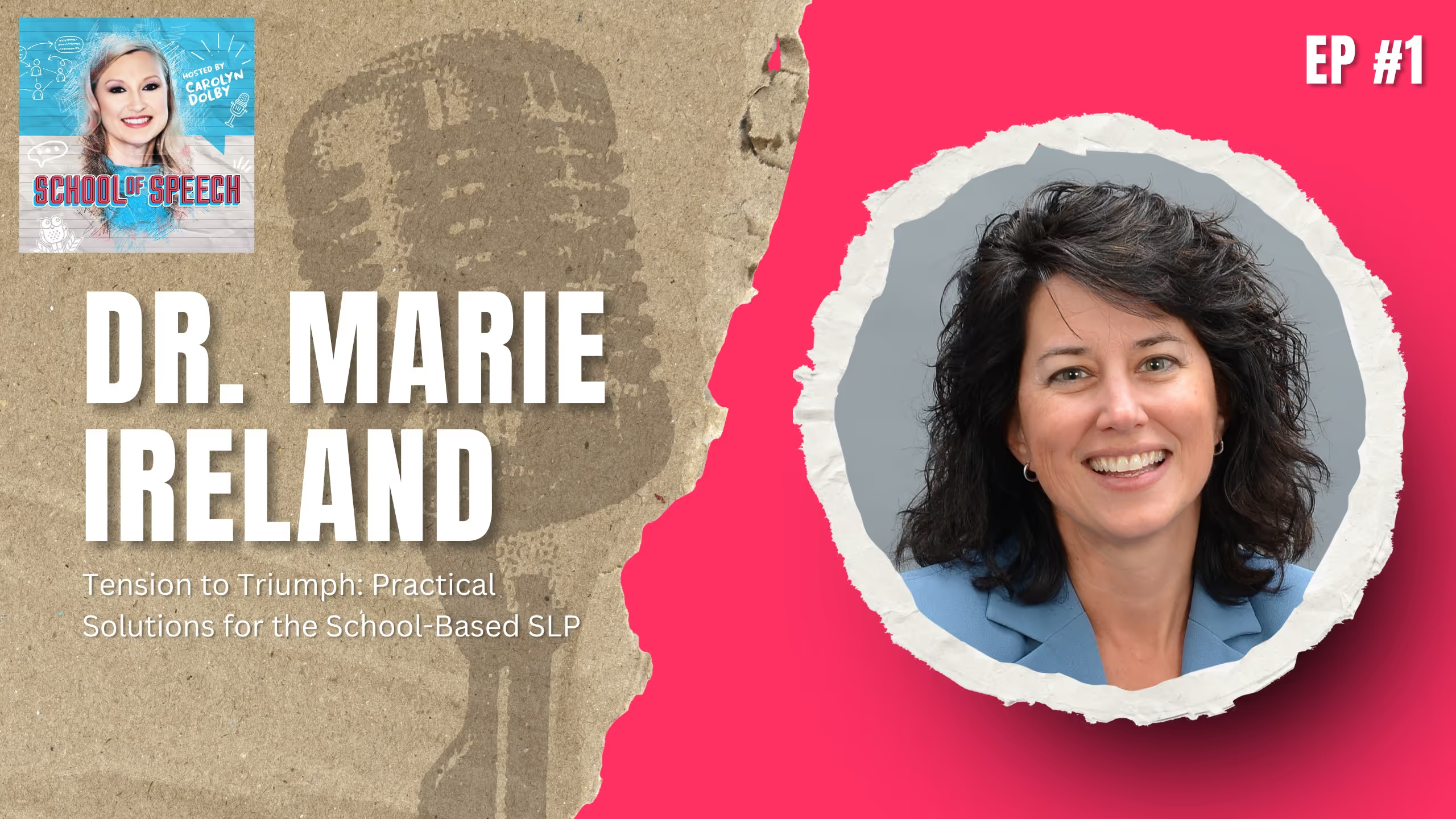
The School of Speech podcast is back! To kick off season two of the weekly school-based SLP podcast, host Carolyn Dolby welcomes Dr.Marie Ireland, a board-certified specialist in child language and former ASHA Vice President of SLP Practice. Dr. Ireland provides us solutions to the research-based tensions school SLPs face. With her wealth of experience, Marie shares practical, research-backed solutions to help SLPs navigate challenges, advocate for their profession, and ultimately serve students more effectively.
Free ASHA CEU: The first CEU you earn from School of Speech this season is free, to find out how listen to the episode on Spotify or Apple Podcasts.
School-based SLPs operate in a unique setting where clinical expertise meets educational policy. They often find themselves balancing IDEA requirements, administrative expectations, and their own professional standards—all while managing heavy caseloads. Through her research, Marie has identified three key categories of tension:
Marie highlights several major challenges school-based SLPs encounter, along with actionable solutions:
Many SLPs feel pressure from administrators and teams to qualify students for services—because “speech is the easiest way into special education.” However, this can lead to over-identification, excessive caseloads, and misallocated resources.
🔹 Solution: Understand and confidently communicate IDEA’s three criteria for eligibility:
Many educators and administrators misunderstand the role of an SLP, viewing them as "speech teachers" rather than specialists in language and communication.
🔹 Solution: Consistently use the full title Speech-Language Pathologist and take every opportunity to educate others on the depth of the profession. Advocate for proper identification and placement of students based on data, not convenience.
It’s easy to want to “help every child,” but IDEA exists to provide services for those who truly qualify. Overloading caseloads means less time for students who need intensive support.
🔹 Solution: Use dynamic assessment to distinguish between lack of exposure and true disability. If a student learns a skill with minimal support, they likely don’t need an IEP. Consider supporting struggling students through general education initiatives like MTSS instead.
SLPs can feel isolated on school campuses, leading to misunderstandings about when to refer students for speech services.
🔹 Solution: Be proactive in general education settings by:
SLPs are often pressured into making eligibility decisions based on team consensus rather than professional judgment. This can be intimidating, especially for newer clinicians.
🔹 Solution: Own your expertise. Instead of saying, “I’m sorry, but I disagree,” say, “Based on IDEA criteria and assessment data, this student does not qualify.” Confident, data-backed communication is key to standing firm in IEP meetings.
By applying these solutions, SLPs can better advocate for themselves, their profession, and—most importantly—the students they serve. Marie’s research highlights that while challenges exist, effective strategies can lead to meaningful change in school-based practice.
Want to contribute to ongoing research? Take part in Marie Ireland’s nationwide survey on school-based SLP experiences TAKE SURVEY.
What challenges resonate with you the most? Share your thoughts in the comments below!
